Today we welcome Angeline Marokoane to our blog series. Angeline is from AHK South Africa and shares with us her insights into the country's very interesting startup ecosystem. Enjoy reading!

Forecasts predict that the expected population growth of working-age people in South Africa will increase. How can this growth be used to increase the frequency of high-potential founders accordingly?
There is a huge opportunity through upskilling the youth, around 37% of the population in 2010, with entrepreneurial and digital skills. This can unlock new businesses and supply existing businesses with complex skills required for the digital economy.
In your opinion, what currently distinguishes many founders? For example, are they particularly risk-averse or do many start up out of necessity?
It is a mixture of both actually, entrepreneurship is a risk as it requires the entrepreneur at minimum to have an income for roughly 3 years. Starting a business does not give any founder such a guarantee. In a country that does not have sufficient early stage funding that can support founders, a large risk on behalf of the founder needs to be taken. Secondly, as a developing country, South Africa faces a lot of developmental problems that are deeply rooted in inequality. So the opportunity to address all these challenges are vast.
Is the government or the education system already setting a course or incentivizing start-ups? What are your experiences?
Yes- there is a government-owned start-up hub called The Innovation Hub, according to its CEO, Pieter Holl, the South African government is in full support of innovation, especially the disruptive part of innovation, because there needs to be a disrupt to ensure there is no monopoly taking place because there needs to a fair and equal playground. There was a Start-up Act position paper that was released during the SA Innovation Summit 2021 which took place online in September 2021. If SA were to implement a Start-up Act, this legislation would fast-track the development of the start-up sector and spur innovation, which will in turn significantly contribute to the country’s economy. There is also SEDA which is another state funded incubator for early stage businesses. The Technology and Innovation Agency supports early stage ventures as well through funding and incubation. Small government grants have been made available through the Support Programme for Industrial Innovation. The education system still lacks in developing entrepreneurial skills at an early stage.
Would you describe specifically what your role is as an AHK in the ecosystem?
Or role is to facilitate and support business opportunities, synergies and innovative co-operations and joint-ventures between companies from South Africa and Germany and to encourage.
What are the connections to Germany?
The GIZ has been supporting local incubators and accelerators. The Goethe Institute as well through advocacy. We also have our working relationship with the The State Development Agency of the Free State of Thuringia (LEG Thüringen) in Germany which is looking for opportunities in SA for companies from that federal state of Germany, and also for chances to cooperate with suitable companies in South Africa. Anja Tambusso-Ferraz, our regional representative for the Western and Eastern Cape of the SA-German Chamber of Commerce, and who represents the State Development Agency of the Free State of Thuringia, says there is a lot of potential for cooperation and is currently looking for opportunities to create collaborations. "There [already] are some real good interactions and business ventures developing between SA and Thuringia – for example in the fields of sustainable building concepts, e-mobility, medical equipment and R&D projects in the field of sustainable textiles."
In your opinion, what makes the German market interesting for South African startups?
Germany is at the forefront of innovation and development. It has 10 000 scientists within renowned universities and research institutes like Fraunhofer, Leipnitz Institute which makes information and opportunities more easily available for keen entrepreneurs.
What were your reasons for participating in the Start.up Germany Tour?
Because Germany is at the forefront of innovation and development and funders are eager to invest in new innovation ideas and companies that will be at the forefront of development. For us it is an opportunity to expose our innovative thinkers to this broader world and their success can inspire up and coming entrepreneurs to aspire to reach the top.


